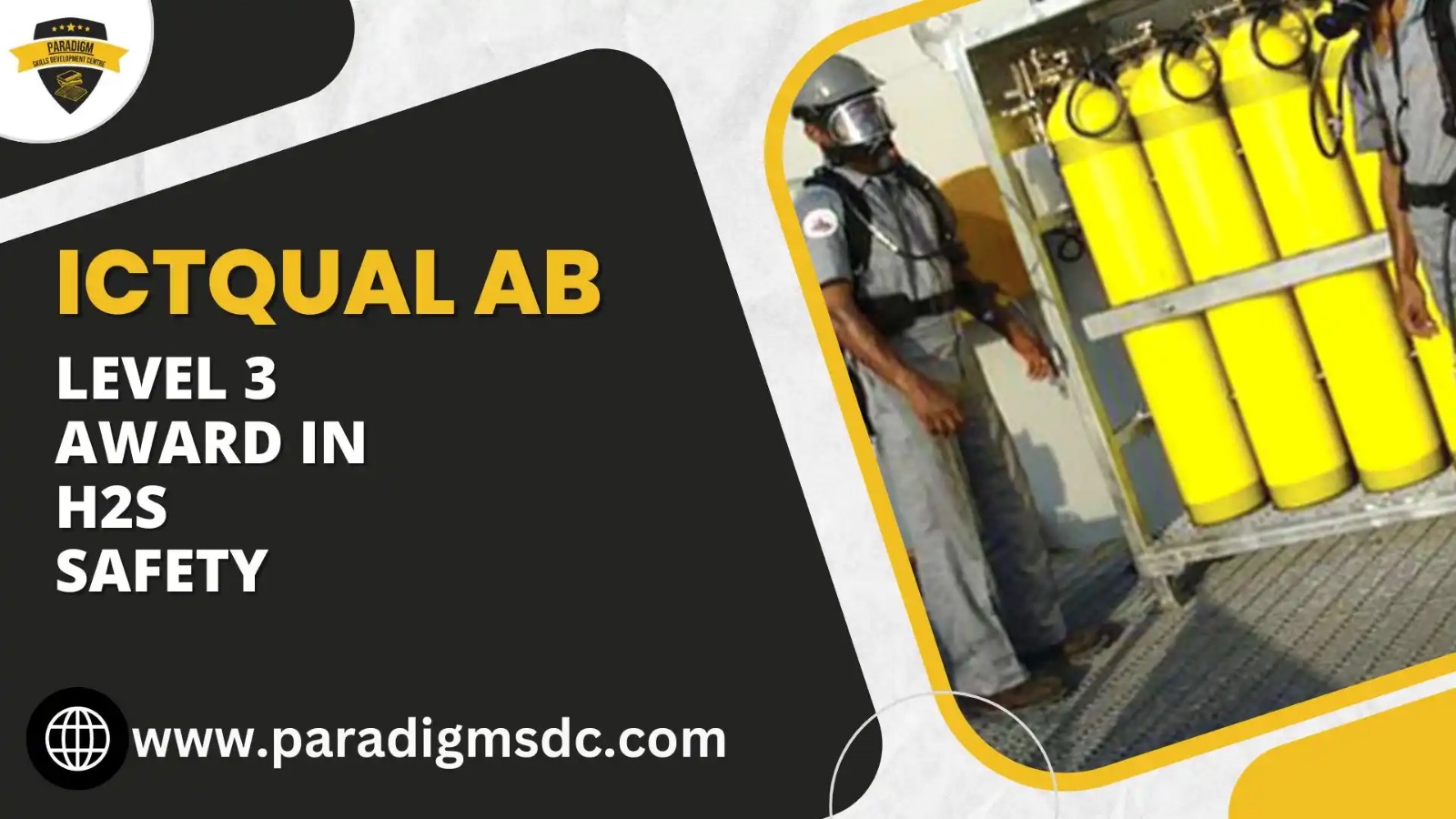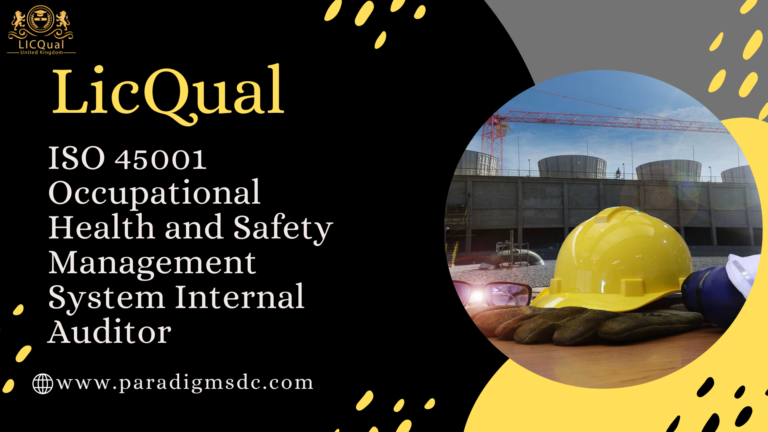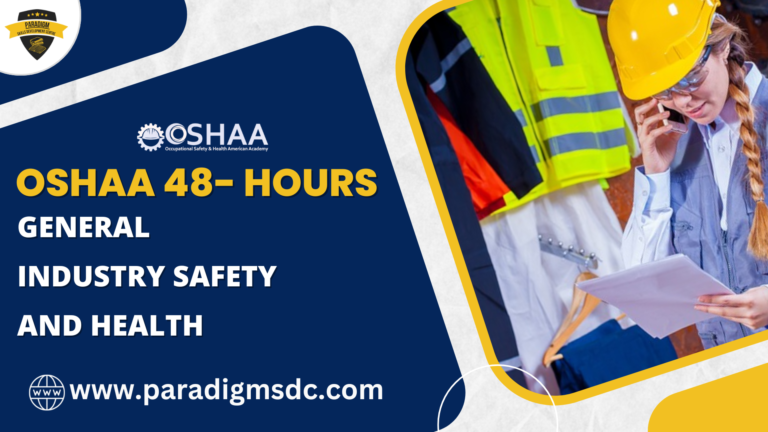Course Introduction
The ICTQual Level 3 Award in H2S Safety is a critical training program designed to provide participants with the knowledge and skills necessary to safely work in environments where hydrogen sulfide (H2S) gas is present. This course emphasizes the importance of understanding the properties, hazards, and safety measures related to H2S, ensuring that individuals can effectively protect themselves and others from this dangerous gas.
Course Overview
This comprehensive course covers all aspects of H2S safety, from recognizing its presence to implementing emergency response procedures. Participants will learn through a combination of theoretical lessons and practical exercises, ensuring a well-rounded understanding of the risks associated with H2S and the best practices for mitigating these risks.
Course Study Units
- Understanding Hydrogen Sulfide (H2S)
- H2S Detection and Monitoring
- Control Measures and Engineering Controls
- Personal Protective Equipment (PPE)
- Emergency Response Procedures
- Legislative and Regulatory Requirements
- Case Studies and Practical Scenarios
- Safety Culture and Risk Awareness
Learning Outcomes
By the end of the ICTQual Level 3 Award in H2S Safety, participants will be able to:
1. Understanding Hydrogen Sulfide (H2S)
- Recognize the characteristics and properties of hydrogen sulfide gas.
- Understand the sources of H2S in industrial environments and its health effects.
- Identify appropriate control measures to minimize the risks associated with H2S exposure.
2. H2S Detection and Monitoring
- Demonstrate proficiency in using various methods and technologies for detecting H2S gas.
- Interpret H2S monitoring data and assess the severity of H2S exposure risks.
- Implement effective monitoring strategies to maintain safe working environments.
3. Control Measures and Engineering Controls
- Evaluate and implement control measures to mitigate H2S hazards in the workplace.
- Understand the principles and operation of engineering controls for managing H2S exposure.
- Design and maintain ventilation systems and air purification methods to control H2S concentrations.
4. Personal Protective Equipment (PPE)
- Select appropriate PPE for H2S protection based on exposure levels and workplace conditions.
- Demonstrate proper donning, doffing, and maintenance procedures for H2S-related PPE.
- Ensure the effective use of respiratory protection and other protective equipment to minimize H2S exposure risks.
5. Emergency Response Procedures
- Develop and implement comprehensive emergency response plans for H2S-related incidents.
- Execute appropriate actions in the event of an H2S release or exposure, including evacuation and first aid.
- Coordinate emergency response efforts to safeguard personnel and mitigate the impact of H2S emergencies.
6. Legislative and Regulatory Requirements
- Comprehend relevant health and safety legislation and regulations pertaining to H2S exposure.
- Ensure compliance with legal requirements and standards for managing H2S risks in the workplace.
- Uphold the responsibilities of duty holders in maintaining safe working environments and protecting workers from H2S hazards.
7. Case Studies and Practical Scenarios
- Analyze real-life case studies involving H2S-related incidents and their consequences.
- Apply theoretical knowledge to practical scenarios, identifying risk factors and implementing effective control measures.
- Enhance problem-solving skills and decision-making abilities through hands-on experience with H2S safety protocols.
8. Safety Culture and Risk Awareness
- Foster a culture of safety and risk awareness among workers and management.
- Promote proactive behaviors and attitudes toward H2S hazard management and mitigation.
- Encourage continuous improvement in H2S safety practices through education, training, and communication initiatives.
Course Benefits
- Enhanced Safety: Gain comprehensive knowledge to ensure personal and workplace safety.
- Compliance: Understand and comply with industry regulations and standards for H2S safety.
- Practical Skills: Develop hands-on skills in detection, monitoring, and emergency response.
- Career Advancement: Improve qualifications and career prospects in industries where H2S is a hazard.
Who is This Course For?
The ICTQual Level 3 Award in H2S Safety is ideal for:
- Oil and gas industry workers
- Chemical plant operators
- Wastewater treatment personnel
- Health and safety officers
- Emergency responders
- Anyone working in environments where H2S is present
Future Progression
Upon completing this course, participants can pursue further qualifications to deepen their expertise and enhance their career opportunities, such as:
- ICTQual Level 4 Award in H2S Safety Supervision: For those aiming to take on supervisory roles.
- ICTQual Level 4 Award in Health and Safety Management: Broaden your knowledge in health and safety management.
- Specialized Certifications: Gain advanced skills in areas such as emergency response coordination and risk management.
The ICTQual Level 3 Award in H2S Safety is an essential step for anyone working in environments where hydrogen sulfide is a risk, providing the critical skills and knowledge needed to work safely and effectively while ensuring compliance with industry standards.







